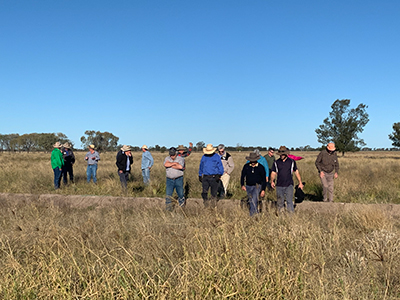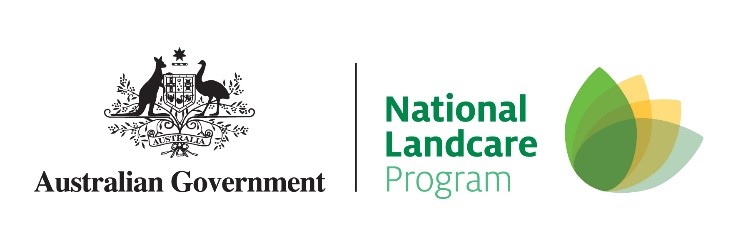Resilient Regional Agriculture
This project works to increase the capacity of agriculture systems in the region to adapt to significant changes in climate and market demands. North West Local Land Services will partner with Landcare groups, industry groups, universities and agribusiness providers to fund workshops and activities which focus on benchmarking (farm biophysical, production and financial), understanding market traceability and provenance, managing climate risks, and understanding current and emerging market demands. These activities will improve the resilience of farmers in the region to changing market demands and climate.
Head to the National Landcare Program website for more information.
The primary outcome of this project will address ‘By 2023, there is an increase in the capacity of agriculture systems to adapt to significant changes in climate and market demands for information on provenance and sustainable production’.
Managing resource condition is crucial to the Australian environment and long term agricultural profitability. Agricultural industries manage over 58% of the Australian landscape, making agricultural industries pivotal in natural resource management.
Within the region, cropping and extensive livestock are the dominant agricultural industries, operating on land with medium-high carbon sequestration potential. The majority of farms within the management unit are mixed operations, operating multiple enterprises within their business. Farming is also a high-risk business and many farmers in the region struggle to adapt to the changes in climate and multiple market demands. This project will work directly with these farmers to improve their ability to manage climate risks to increase long term profitability and management of natural resources within capability.
Funded projects
DCRA Field Day 2023
Local Land Services proudly supported the DCRA Field Day through NLP Funding. Below you will find a series of Cotton Workshops which were presented on the day.
Gordon Cumming explains the WAND (Weather and Networked Data) service which measures wind speed in all direction between 2 and 10 m which enables a measurement of air turbulence which reduces the risk of spray drift. Growers can access WAND through a web page (not an app at the present time) and find out if there is a risk of spray drift at the nearest WAND station based on a combination temperature inversion and turbulence. WAND will also produce a short term (2hr) forecast to assist in decision making during spraying.
Warwick Stiller from the CSIRO gives an update on the newer lines in the cotton breeding program being tested for potential release, an outline of their characteristics and a summary data available on those lines such as seed density and likely seed availability. Advances in techniques used by the breeding teams to speed up the rate of genetic gains in cotton were also discussed.
Tom O'Donoghue talked about calibrating capacitance soil probes to measure the impact of cover crops on moisture accumulation in cropping situations. Tom found that cover crops in most cases had a positive influence on total moisture accumulation even after accounting for moisture used by the cover crop.
Simon Blyth from INCYT talked about software that can used in the cabin with real time feedback to increase situational awareness of spray rig operators to reduce the risk of spray drift.
Managing Climate Risk
North West Local Land Services is working with partners to increase the knowledge, skills, confidence, awareness and adoption of recommended tools, technologies and practices to adapt to changing climate.
Find out more about these projects.
Managing current and emerging markets
North West Local Land Services is working with partners to increase the knowledge, skills, confidence, awareness and adoption of recommended tools, technologies, and practices to adapt to current and emerging market demands.
Find out more about these projects.
Benchmarking and capacity building
North West Local Land Services is working with partners to increase the knowledge, skills, confidence, awareness and adoption of recommended tools, technologies and practices to undertake benchmarking and capacity building activities.
Find out more about these projects.

This project commenced in July 2018 and will conclude in June 2023 and is funded by the Australian Government’s National Landcare Program.
Project contact: George Truman, 0427 505 040
